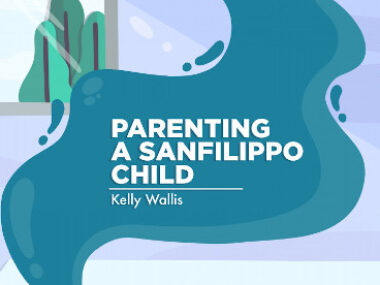Connecting with my daughter is difficult due to Sanfilippo syndrome
The disease has caused Abby to be much less affectionate
Written by |

My 28-year-old daughter, Abby, has Sanfilippo syndrome. It’s a rare, terminal, genetic disease that is often referred to as childhood Alzheimer’s because it affects the body similarly. Most children with Sanfilippo pass away by their midteens, so the disease certainly takes its toll on the body quickly. However, Abby has an attenuated form of Sanfilippo, which means it progresses more slowly.
This devastating disease wreaks havoc on the body, especially the brain. Patients lose all sorts of skills, including speech and cognitive and motor abilities. We have witnessed Abby lose almost all her language except for a handful of words. She also has trouble with walking and motor planning.
Lately, I’ve noticed that Abby is much less affectionate than when she was younger.
Abby was an affectionate child
From her toddler years until the age of 26 or so, Abby was very affectionate. She would freely give kisses — and I’m talking about loud, smacking smooches! It was so sweet and endearing. She also hugged and held hands often, when it was offered to her.
I’ve recently realized that she holds hands now only when I initiate it. If I try to get a kiss from her, she rarely does it and instead turns her head away. And instead of giving hugs, she’s more prone to pushing away. It’s just one more precious thing that this disease has stolen from her. I don’t know if this change is due to her not understanding how to show affection anymore, or if her personality has been altered.
In speaking with other Sanfilippo parents, I’ve been told that they have noticed similar changes in their children. As the disease progresses, their children have stopped laughing and smiling, and some have even begun to have crying fits. It is heartbreaking to hear.
How Abby connects with others now
Abby does have her own way of connecting with others, and it’s mainly with her eyes. There are certain moments when she looks at you right in the eye, and you feel that connection with her. Sometimes it’s a passing glance, but then there are times when she looks at you and it’s different. It’s intentional and hopeful. She makes a concerted effort to relate to you with her eyes. It’s hard to put into words.
Abby will also smile and laugh during her favorite shows or movies. She rarely shows signs that she is uncomfortable, and I can count on one hand the number of times I have seen her cry in the past several years. She can still walk, though she needs help sometimes. And thankfully, her vision and hearing appear to still be in good shape.
I choose to be grateful for all of this. I have learned in the years since she was diagnosed to be appreciative of every little thing. She still laughs and smiles and can find enjoyment in life. She will hold my hand and likes when I scratch her back. She occasionally still sings a few words of some of her favorite songs. I have to be grateful for these small remnants of Abby, because one day they will all be gone.
Note: Sanfilippo News is strictly a news and information website about the syndrome. It does not provide medical advice, diagnosis, or treatment. This content is not intended to be a substitute for professional medical advice, diagnosis, or treatment. Always seek the advice of your physician or other qualified health provider with any questions you may have regarding a medical condition. Never disregard professional medical advice or delay in seeking it because of something you have read on this website. The opinions expressed in this column are not those of Sanfilippo News or its parent company, Bionews, and are intended to spark discussion about issues pertaining to Sanfilippo syndrome.





Georgia White
Thank you for sharing these difficult times with me. Prayers for you, your family and Abby. Peace, Georgia white